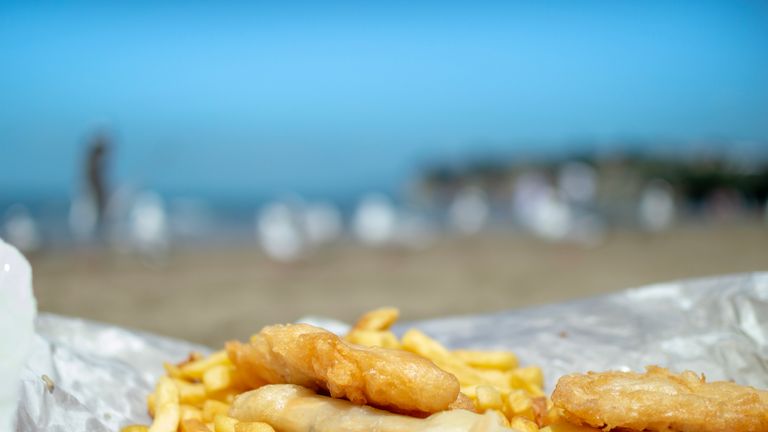Bird’s eye view: Staring at seagulls could save your chips
Few things are more enjoyable during a trip to the seaside than a portion of chips – until seagulls have their way with them.
The birds are notoriously aggressive when it comes to trying to get their beaks on our beach lunches, but new research shows that staring at them makes them less likely to steal your food.
According to a study by the University of Exeter, gulls take an average of 21 seconds longer to approach your snacks when a human is keeping an eye on them – seemingly intimidated by the potential ramifications of their actions.
The researchers carried out their project in Cornwall, putting a bag of chips down and testing how long it took herring gulls to approach when they were being watched, compared to when the human looked away.
Most of the 74 gulls they tried to tempt flew away or would not approach, and only 27 went towards the chips, but 19 completed both of the tests.
Lead author Madeleine Goumas, of the Centre for Ecology and Conservation at the university, said: “Gulls are often seen as aggressive and willing to take food from humans, so it was interesting to find that most wouldn’t even come near during our tests.
“Of those that did approach, most took longer when they were being watched. Some wouldn’t even touch the food at all, although others didn’t seem to notice that a human was staring at them.”
She added that the difference in how bold the gulls might be could be because of their personality – or down to positive experiences of being fed by humans in the past.
Dr Neeltje Boogert, senior author of the study, which was published in Biology Letters, explained that gulls learn “really quickly” and might be keen to seek more food after their first successful bid to swipe some.
“Our study took place in coastal towns in Cornwall, and especially now, during the summer holidays and beach barbecues, we are seeing more gulls looking for an easy meal,” she said.
“We therefore advise people to look around themselves and watch out for gulls approaching, as they often appear to take food from behind, catching people by surprise.
“It seems that just watching the gulls will reduce the chance of them snatching your food.”
While the overall population of herring gulls in the UK is on the decline, their numbers in urban areas are rising.
But the researchers have urged the public not to treat all gulls alike, no matter how much of a nuisance they may be, as most of them would appear wary of approaching humans.
It is also worth noting that chips are not part of their natural diet – gulls are far more keen on fish and invertebrates.
Source: Read Full Article




